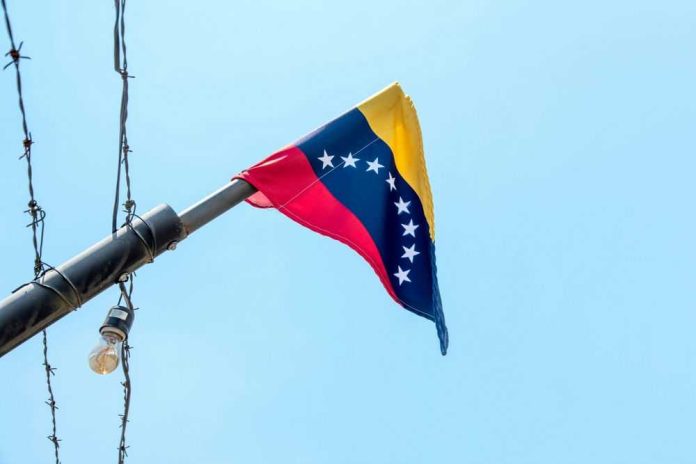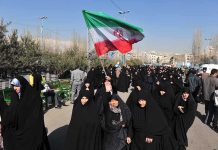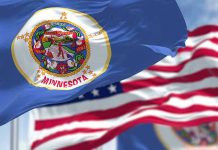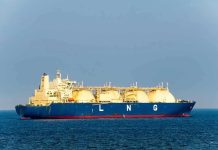
President Trump’s historic military buildup in the Caribbean has triggered fierce accusations of U.S. regime change ambitions from Venezuela’s embattled leader, raising the stakes for American security and constitutional values in the Western Hemisphere.
Story Snapshot
- U.S. deploys largest naval force in decades near Venezuela, citing anti-drug cartel operations.
- Venezuelan President Maduro accuses the U.S. of plotting regime change, calling it the gravest threat in a century.
- Trump administration doubles the bounty for information leading to Maduro’s arrest to $50 million.
- Tensions escalate as military presence and diplomatic rhetoric intensify, with historical parallels to Panama.
Trump’s Caribbean Deployment and Venezuela’s Explosive Response
In August 2025, President Trump authorized a substantial deployment of U.S. naval forces—including seven warships and a submarine—to the southern Caribbean, positioning them off the coast of Venezuela. Official briefings from the Pentagon emphasized the mission’s focus on dismantling Latin American drug cartels funneling narcotics into the United States. However, Venezuelan President Nicolás Maduro immediately denounced the move as a thinly veiled attempt at regime change, warning journalists that Venezuela faced the continent’s greatest threat in a century. This high-stakes maneuver follows years of diplomatic friction and a deepening crisis inside Venezuela, where Maduro’s regime stands accused of corruption, human rights abuses, and direct involvement in transnational drug trafficking networks.
The Trump administration’s stance has been unequivocal: the U.S. will not tolerate criminal regimes threatening American security or sovereignty. In late August, the Department of Justice doubled its bounty for information leading to Maduro’s capture, raising the reward to $50 million and labeling the Venezuelan president a fugitive cartel leader. White House Press Secretary Karoline Leavitt reinforced the administration’s commitment to ending narco-terrorism in the region, while officials pointed to historical precedents—including the 1989 U.S. operation to arrest Panama’s Manuel Noriega—as evidence of America’s resolve. This escalation has placed Venezuela’s military on high alert and drawn sharp rebukes from Maduro, who continues to rally nationalist sentiment by framing the crisis as a fight against imperialist aggression.
Historical Parallels and Rising Regional Risks
The military buildup comes amid a broader context of constitutional and security challenges facing the United States. Since 2013, Venezuela has spiraled into political and economic crisis, with Maduro’s contested elections and disregard for opposition victories undermining democratic norms. The U.S. has repeatedly accused the regime of shielding powerful drug cartels—particularly the “Cártel de los Soles”—and facilitating the flow of narcotics that fuel crime and addiction on American soil. By deploying naval assets and leveraging unprecedented bounties, the Trump administration signals a willingness to project power and defend U.S. interests, a sharp contrast to years of what critics called “weak and globalist” approaches that allowed hostile regimes and criminal networks to thrive.
While Pentagon officials maintain that the operation targets drug traffickers—not regime change—analysts and insiders note striking ambiguities in official statements. Some U.S. officials have openly drawn parallels to the Panama invasion, stoking speculation about Washington’s true intentions. The ambiguity is deliberate, serving both as psychological pressure on Maduro and as a message to adversaries across the hemisphere. The situation remains volatile: Venezuela’s military is on alert, diplomatic channels are strained, and both sides are warning of dire consequences if red lines are crossed.
Impact on U.S. Security, Regional Stability, and American Values
Short-term, the U.S. deployment raises the risk of military confrontation and could disrupt cartel operations, potentially reducing the flow of drugs that devastate American communities. However, the standoff also risks triggering a humanitarian crisis in Venezuela, further destabilizing a region already plagued by mass migration and economic collapse. For American conservatives, the Trump administration’s actions represent a return to muscular foreign policy rooted in constitutional authority and national security—standing up to regimes that threaten liberty, law, and order.
Maduro Accuses U.S. Of ‘Seeking A Regime Change’ After Trump Deploys Military To South Caribbean https://t.co/fiw4LbQy4j
— ConservativeLibrarian (@ConserLibrarian) September 2, 2025
Yet, questions persist about the long-term wisdom and effectiveness of direct military intervention as a tool for combating criminal states. Experts warn of potential spillover effects, refugee surges, and the precedent set for future actions in Latin America. The administration insists that the operation is lawful, justified, and necessary to protect American families and uphold the Constitution in the face of foreign threats. As the situation develops, constitutional conservatives will watch closely to ensure American values—especially the rule of law, sovereignty, and defense of the homeland—are not compromised by globalist agendas or diplomatic double standards.
Sources:
Maduro claims U.S. seeks regime change amid military threat, Caribbean buildup — Fox News
Why are U.S. warships heading toward Venezuela? — Atlantic Council
Venezuela: U.S. ships, Trump, and regime change — Axios













